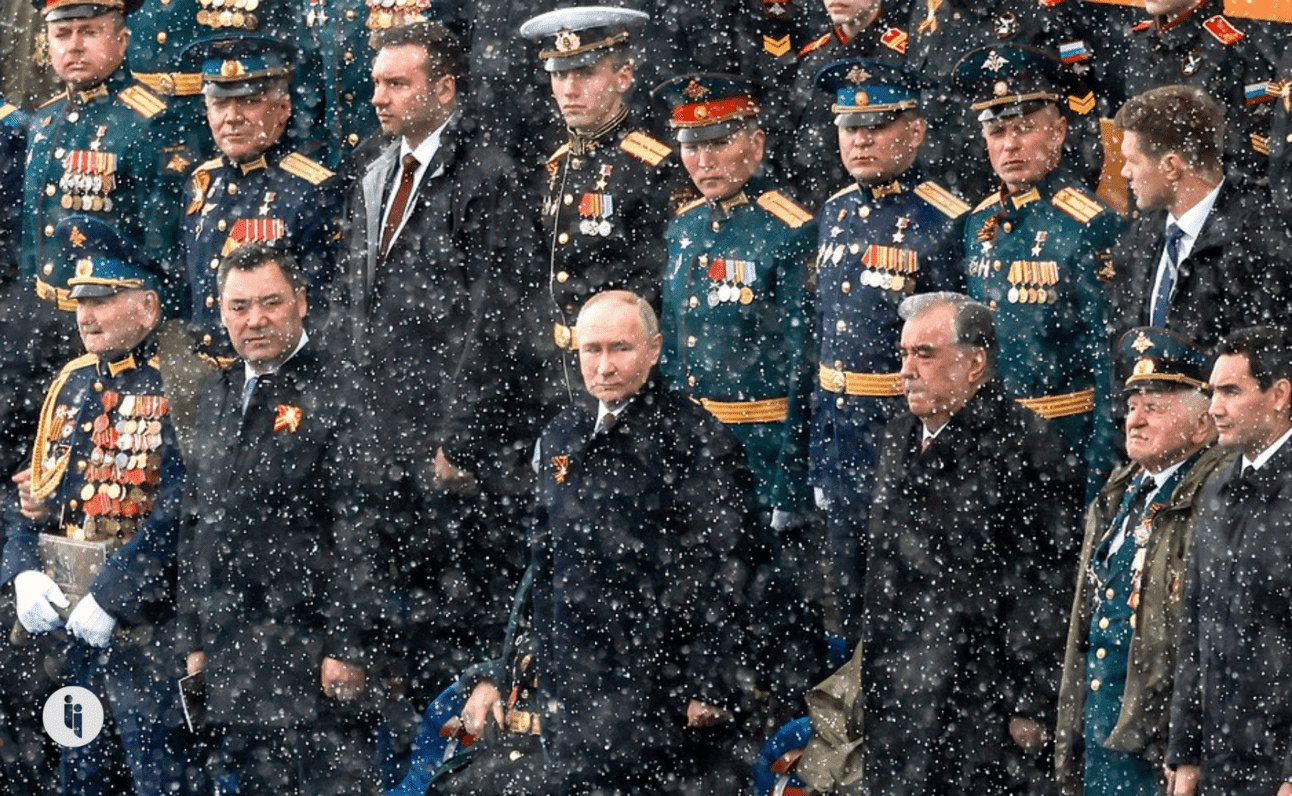Cue another Putin speech! The Russian leader addressed his nation on ‘Victory Day’ yesterday (Thursday) – it’s a key public holiday commemorating the defeat of Nazi Germany in World War II, known in Russia as the Great Patriotic War.
Let’s paint you a picture: Moscow awoke to a flurry of snow as it recorded its coldest May 9th in decades. Nine foreign dignitaries then emerged in Red Square: the heads of ex-Soviet republics Belarus, Kazakhstan, Kyrgyzstan, Tajikistan, Turkmenistan and Uzbekistan, plus the leaders of Moscow-friendly Cuba, Laos, and Guinea-Bissau.
They were there to join Putin as he watched a seven-minute military parade rumble past (and roar overhead). It was similar in size to last year’s scaled-back version, and again featured a single tank: the WWII-era T34 which was, it turns out, first developed in Ukraine (now a graveyard for 3,000 Russian tanks).
Stay on top of your world from inside your inbox.
Subscribe for free today and receive way much more insights.
Trusted by 99,000+ subscribers
No spam. No noise. Unsubscribe any time.
Putin then took the podium and kicked off his six-minute remarks with the traditional “dear veterans”, before rehearsing some familiar lines – labelling his foes “Nazis”, hinting at his nuclear arsenal, and recalling the Soviet Union’s massive WWII losses (some 8.7 million troops and 19 million civilians).
But there were two main lines that jumped out at us.
“Today, we are witnessing attempts to distort the truth about World War II”
This was Putin’s opening point. And we’re not seeking to be sassy here when we flag that Putin then went on to, well, distort the truth about WWII. For example, he claimed that “virtually all of Europe worked to support the Nazi war machine” in WWII. It’s unclear if he was referring to the fact that, by the time Hitler turned on Stalin, much of Europe was already under Nazi occupation.
And that reminds us: Putin of course made no mention of the Molotov-Ribbentrop pact, which saw the USSR partner with the Nazis and help them invade Poland.
Regardless, the above was one of several lines almost seeking to cast his invasion of Ukraine as a continuation of WWII. And he needed that framing because of what came next…
“Russia is now going through a difficult, watershed moment of its history”
Popular support for Putin’s war depends in part on the ability of Russian urbanites to keep pretending it’s not happening. But that gets tougher as casualty numbers (now 400,000+) keep growing by around 900 per day. So, elliptical lines like the above are a balancing act: a nod to reality without highlighting it.
Putin then wrapped it up with a minute of silence, just as the snowfall resumed.
INTRIGUE’S TAKE
So what does Putin’s speech tell us? It was interesting to see him give a brief WWII shout-out for neighbouring China, whose current economic lifeline is helping sustain his war. But most insights were behind the podium.
The audience didn’t include, for example, the leader of Armenia, even though Pashinyan himself was in Moscow the night before for a regional summit. It’s a reminder of how deep the rupture is with Putin’s erstwhile ally, who’s now actively leaning West.
And the audience did include the governor of Moldova’s Gagauzia region, who’s facing charges of taking $2.4M in illicit cash from Russia. Her presence is a reminder of Russia’s efforts to destabilise a pro-EU Moldova.
The audience also included (per exiled Russian media) Chalym Chuldum-ool and Boris Dudko. They were among Russia’s occupying troops in Ukraine’s Bucha and Yahidne respectively, leaving behind evidence of serious war crimes when they fled in 2022. Yet they were both in seats of honour, right behind Putin (wearing the red / blue caps in the image above). It’s a reminder of how differently Putin sees – or wants to see – his war.
So our sense overall? Among the words, the nine foreign dignitaries, the parade, the snowflakes, and the soldiers roaming around Red Square with anti-drone weapons, this year’s Putin feels slightly recovered, slightly less isolated, slightly more resentful, and slightly more paranoid.
Also worth noting:
- The same day over in Lithuania’s capital of Vilnius, EU leader Ursula von der Leyen marked the 20th anniversary of Lithuania’s accession to the EU. Her speech included this line: “For many years, Lithuania warned Europe about the dangers of Russia. After 2014, you told us that Putin would simply not stop. And Europe should have listened.”
- Ukraine officially moved its own WWII commemoration a day earlier last year, aligning with most European countries. This year (Wednesday), Ukraine announced plans for electricity rationing after recent Russian attacks on the country’s infrastructure.
- Putin was sworn into his next six-year term as president on Tuesday.








